Expectations affect flavor, so Sasakura teaches another bartender how bars and drinks have personality.
Episode 4 — “A Bar’s Secret Ingredient / The Face of a Martini”
Hmm. Bartender Glass of God Tasting Notes.
Preconceptions or expectations? Customer service, sales, advertising, and the art of persuasion call them the same thing: bias. For Bartender Glass of God, the host or master of a space knows how to manage a patron’s expectations through mood, atmosphere, and even the name of a drink. Delightful events occur when an experience pleasantly veers away from preconceptions. That’s the goal of every bartender in Sasakura’s orbit in the anime. How they get there is the individual bartender’s “personality.”
Liquor Has “Personality,” and So Does a Bartender
Newbie bartender Kyouko discovered the concept of the “face” of a martini after she mixed one by rote. Each liquor has properties a bartender can effectively reveal to maximize its flavor. But the “face” also applies to the bartender and the establishment serving it. You might see them on menus as the “signature cocktails.” Those ingredients and presentations tell you the “face” of the head bartender.
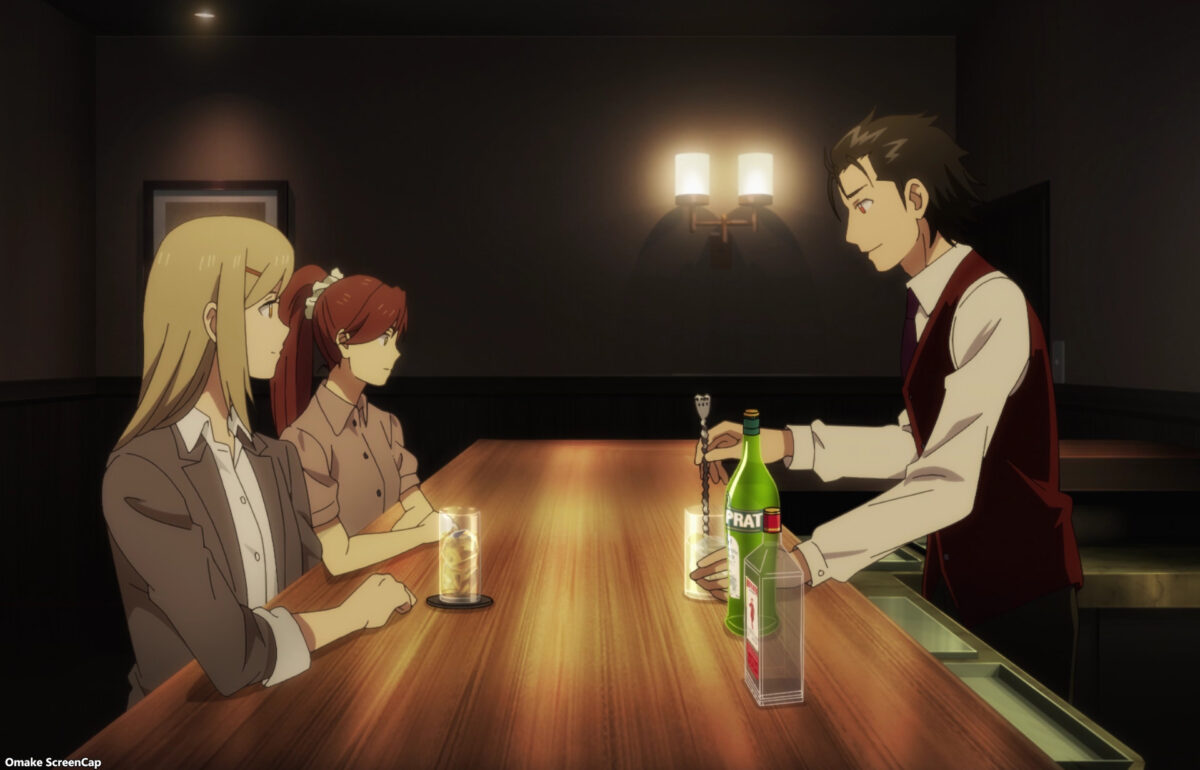
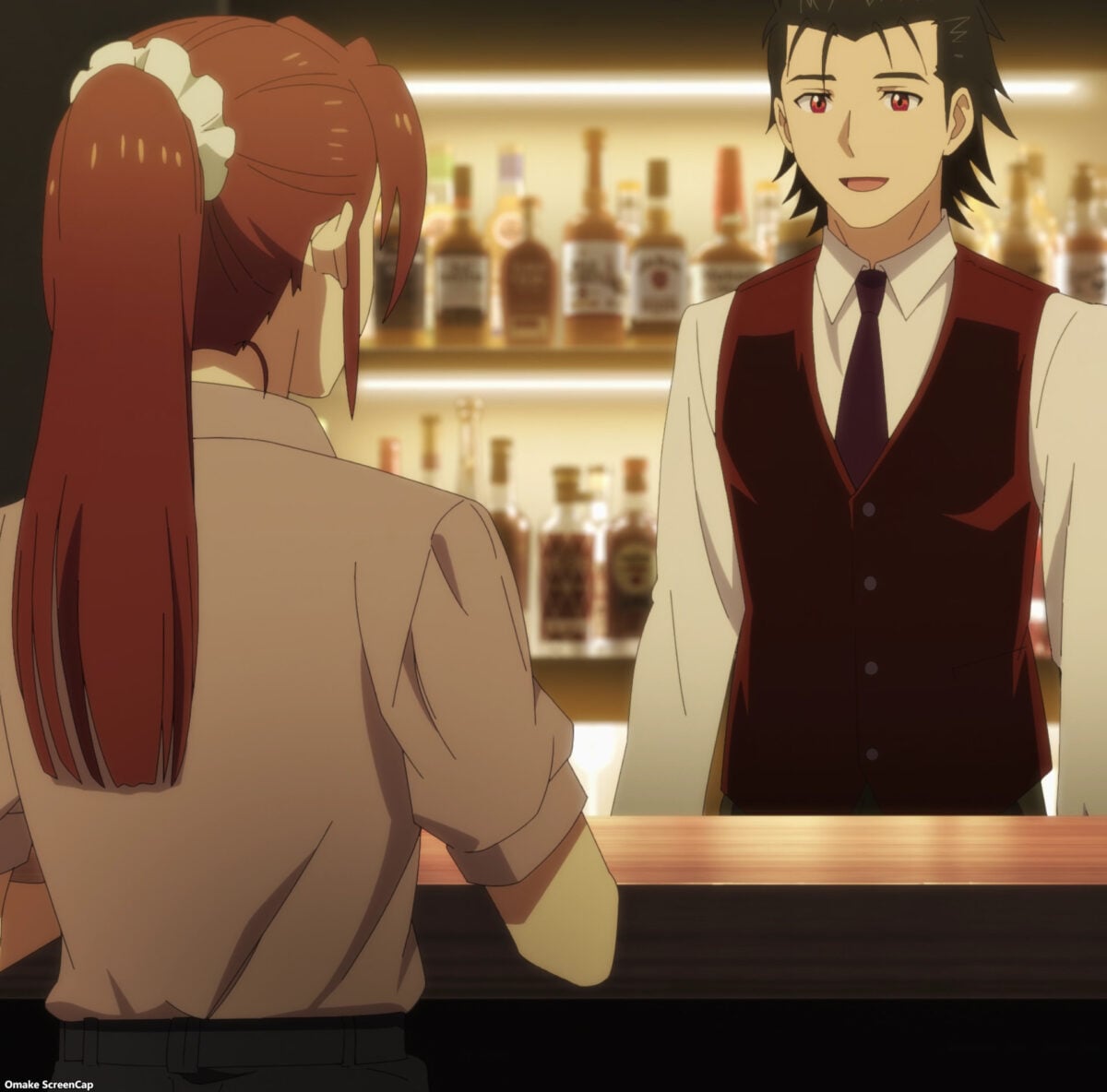
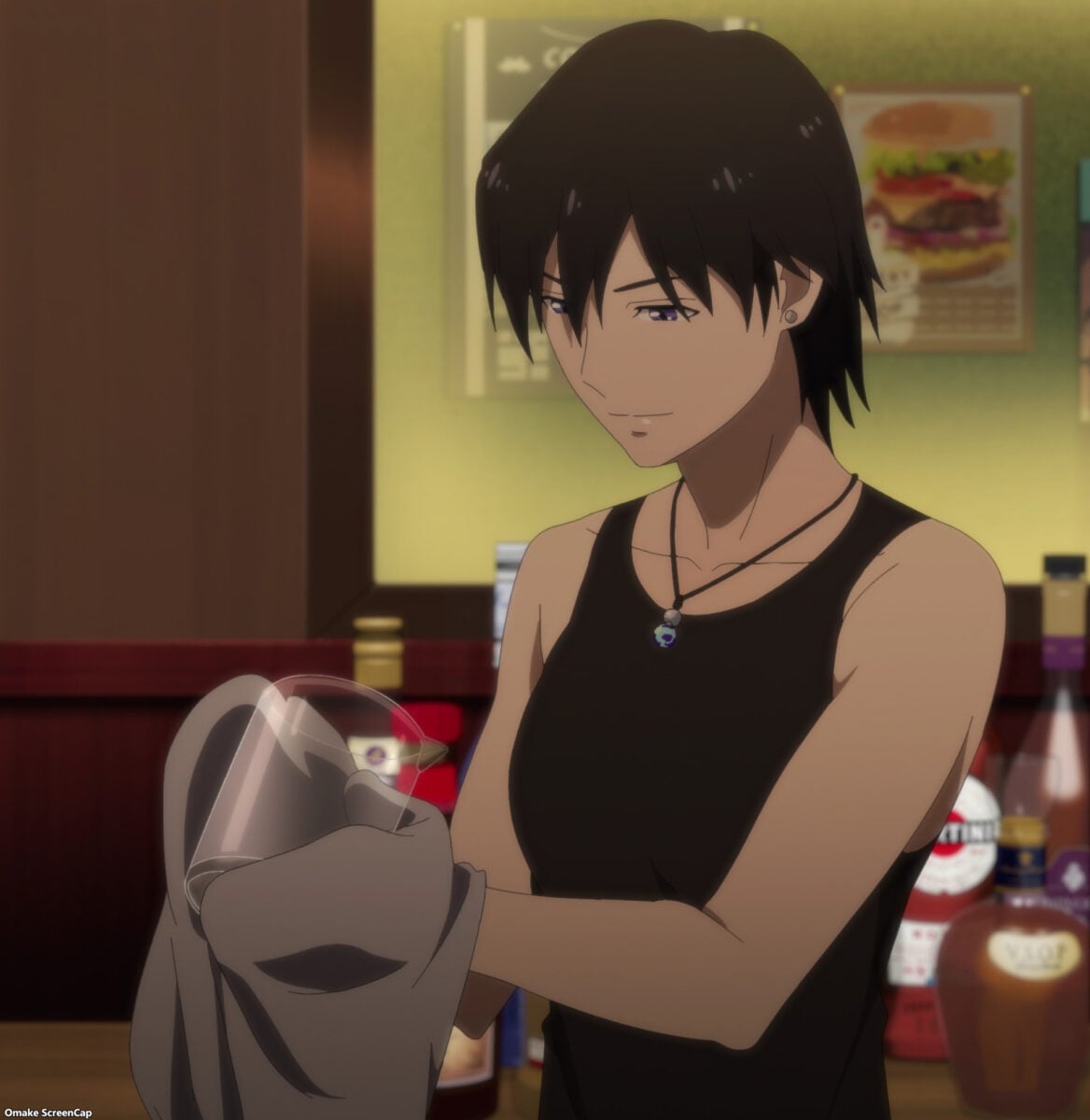
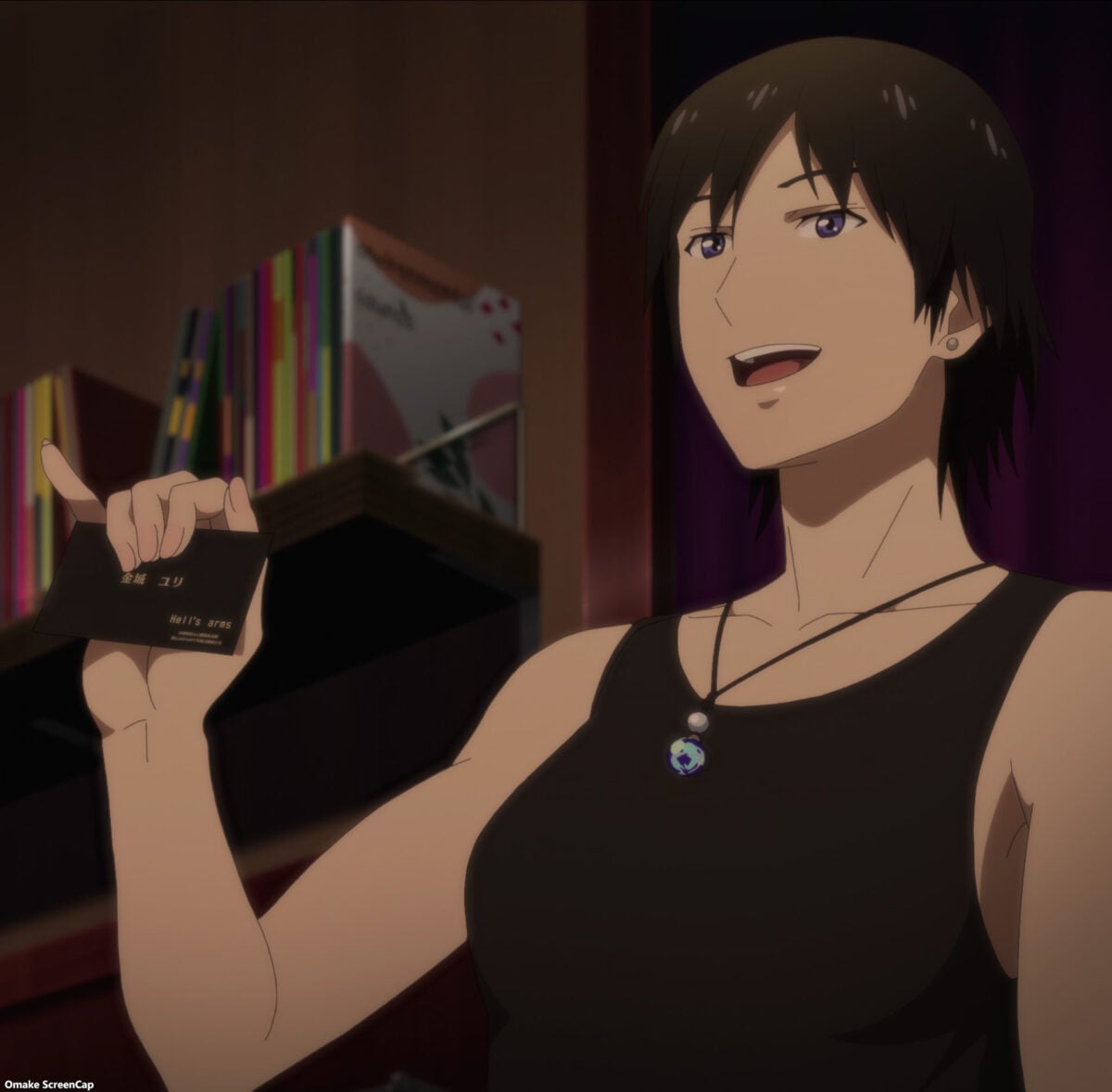


In Bartender Glass of God, we see ambitious bartenders at different levels of growth. The first step is deciding on a bartender’s personality. Kyouko needs to figure out what kind of bartender she will become. Sasakura is almost at the pinnacle with Mr. Perfect. Yuri wants to test herself at a cocktail contest. It appears that Mr. Perfect would like to enter that competition, too. Is Bartender Glass of God turning into a tournament-style battle drink mixing anime? I hope not!
Clients Make the Bar
While the bartenders set the “face” of the drinks they serve, the bar sets the expectations. Would you expect a dive bar to serve mixed drinks made from 300-dollar bottles of Scotch? Or an elegant hotel observation lounge bar to serve cans of hard seltzer? Furniture and location set the parameter limits, but the people in a bar set the mood and atmosphere.


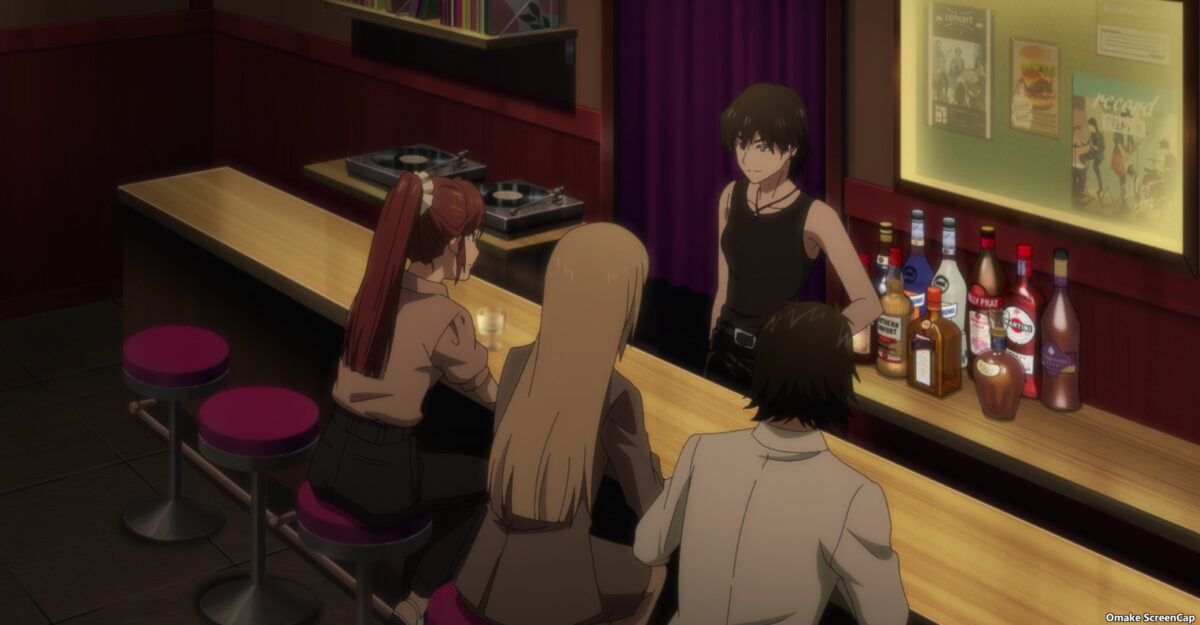
After you step into a new place and look around at the clientele, you already know if you’ll like it. Do you fit in? Do you want to? These are questions customers should ask themselves. Other things work, too. Menu prices are a prominent gatekeeper, and furniture and fashion attract like-minded customers. Did you watch Snack Basue last season? The customers’ conversations and karaoke singing built the Basue Snack Bar’s “personality.” And so did Mama Basue and bartender Akemi. They were the secret ingredients, according to Sasakura. That guy loves his secret ingredients.
Refreshing Moscow Mule from the Glass of God.
Kamashima, Miwa and Yukari’s supervisor, finally tasted the Glass of God. What took him so long? He took the hint from his CEO to employ Sasakura’s Glass of God trick as a persuasion technique. The combination of Sasakura’s observant eye and ingredient choices impresses the hotel development manager. The bartender’s version of a Moscow mule “nudged” the stress-out executive.
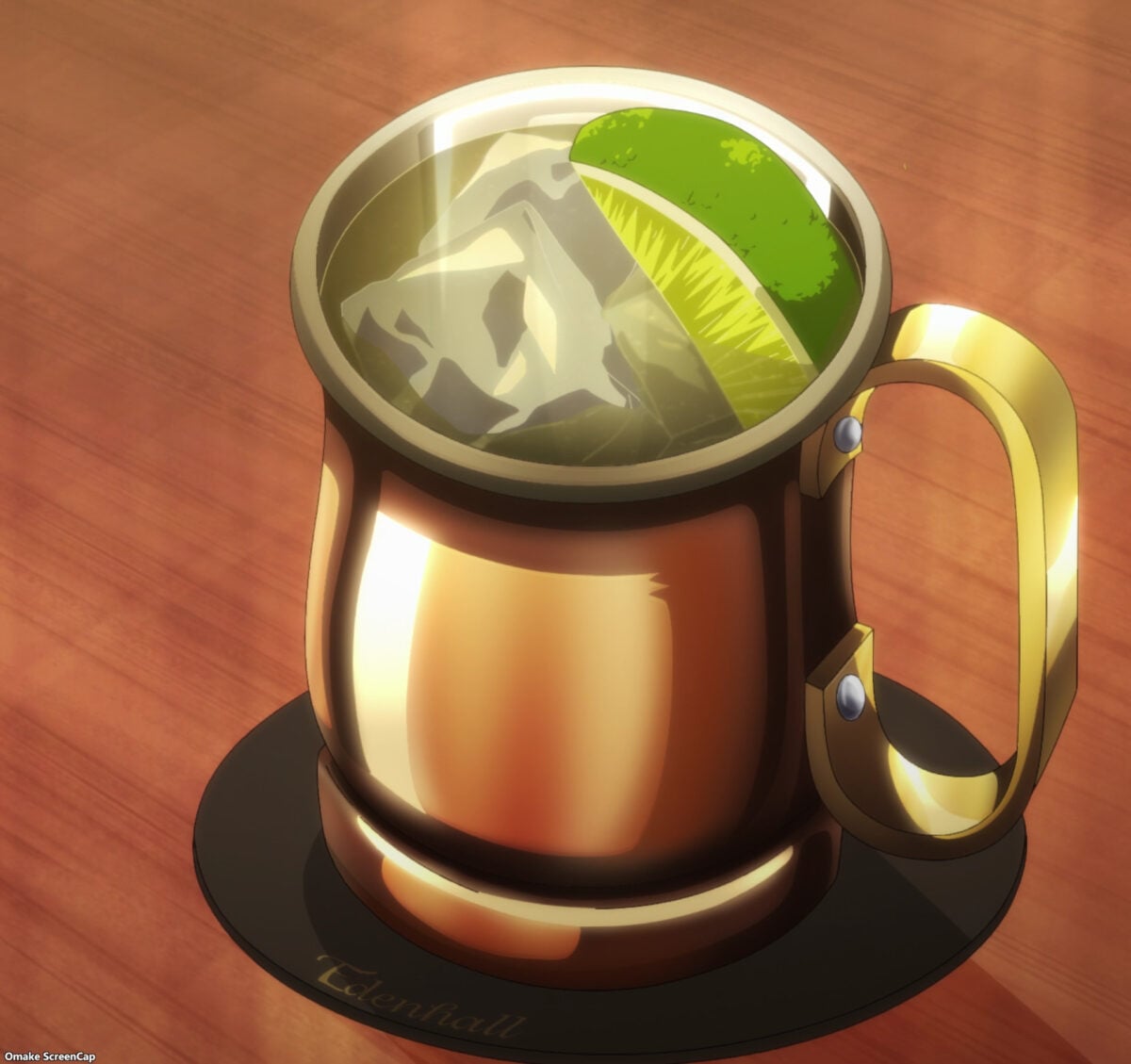
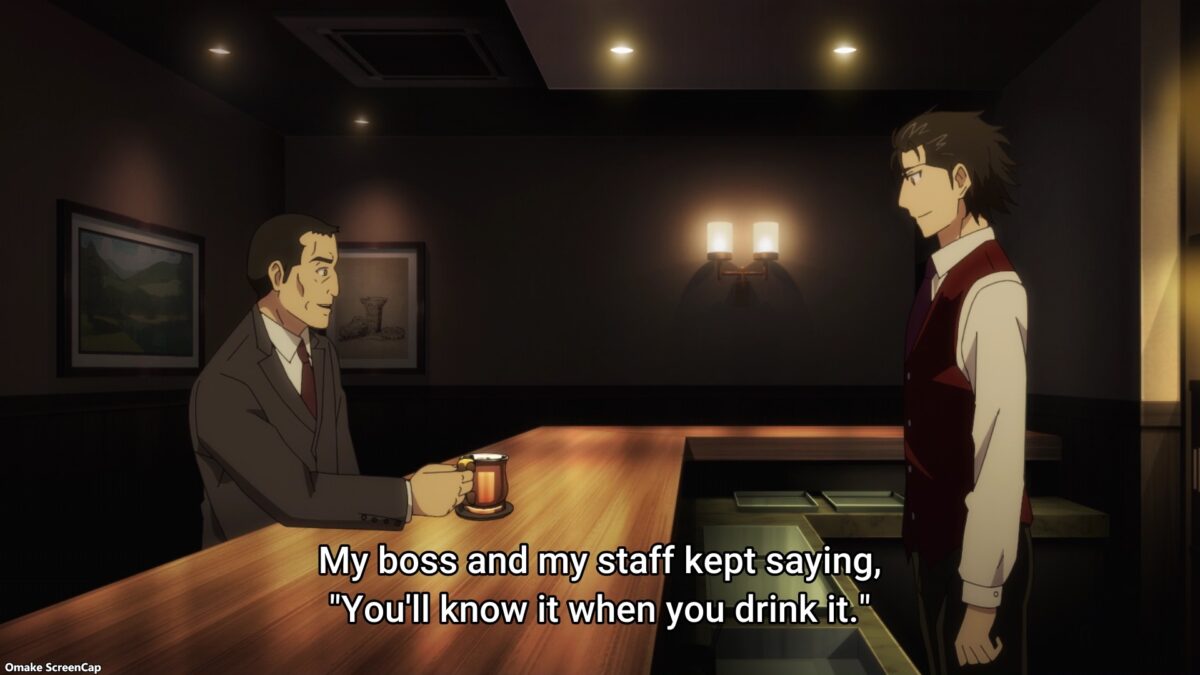
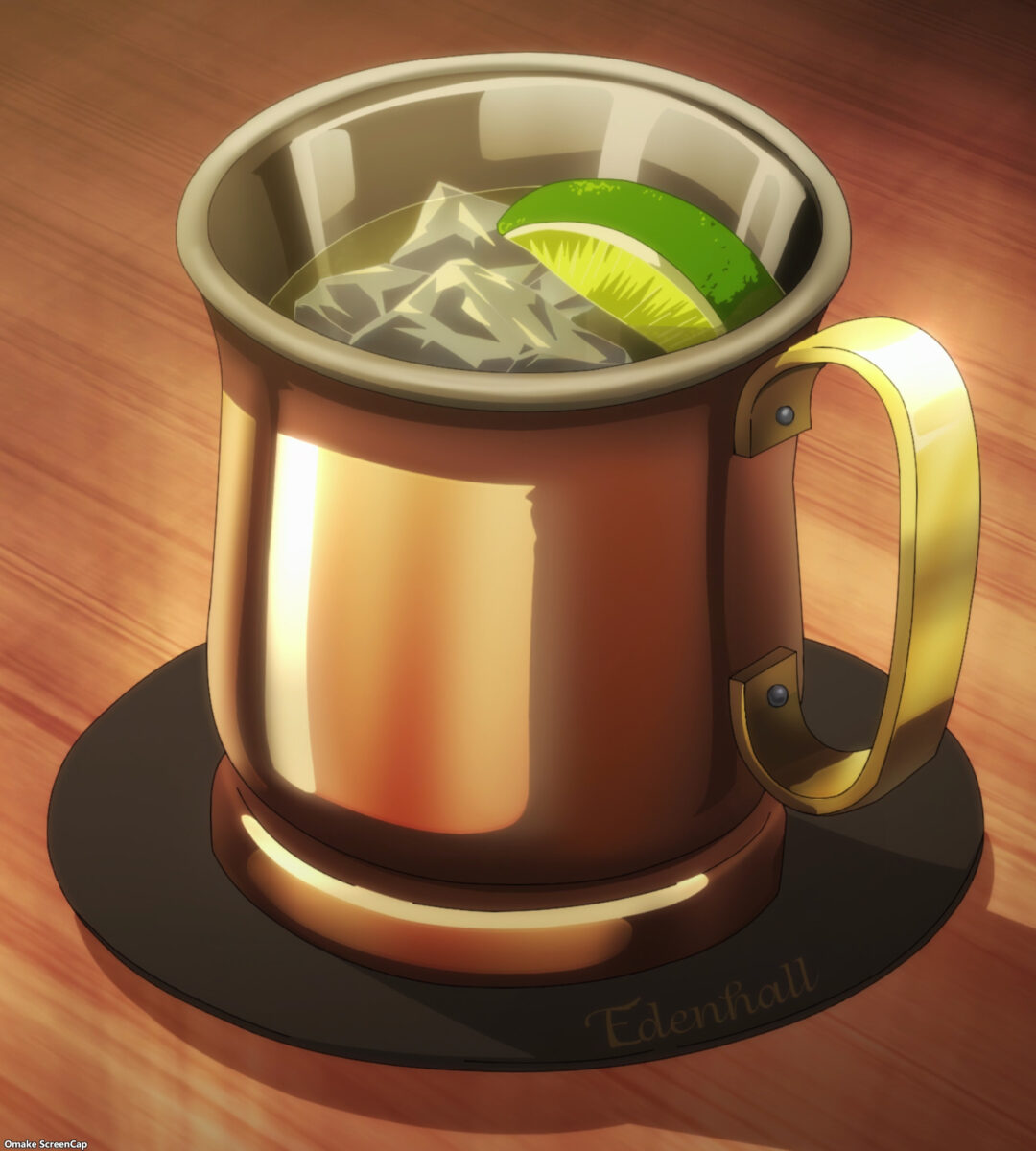
I wish Bartender Glass of God had shown us the vodka and ginger beer brands. The original Moscow mule was a marketing tool to sell Smirnoff vodka and clear shelf space from too much ginger beer in Los Angeles. The Moscow part of the cocktail’s name, apocryphally, comes from the leftover copper mugs from the Moscow Copper Company. The taste of copper affects the citrus and spice combination of ginger and lime, so I wondered if Sasakura changed anything and how he would explain it. No such luck for liquor fans.
Mirin — the Japanese Cooking Sherry
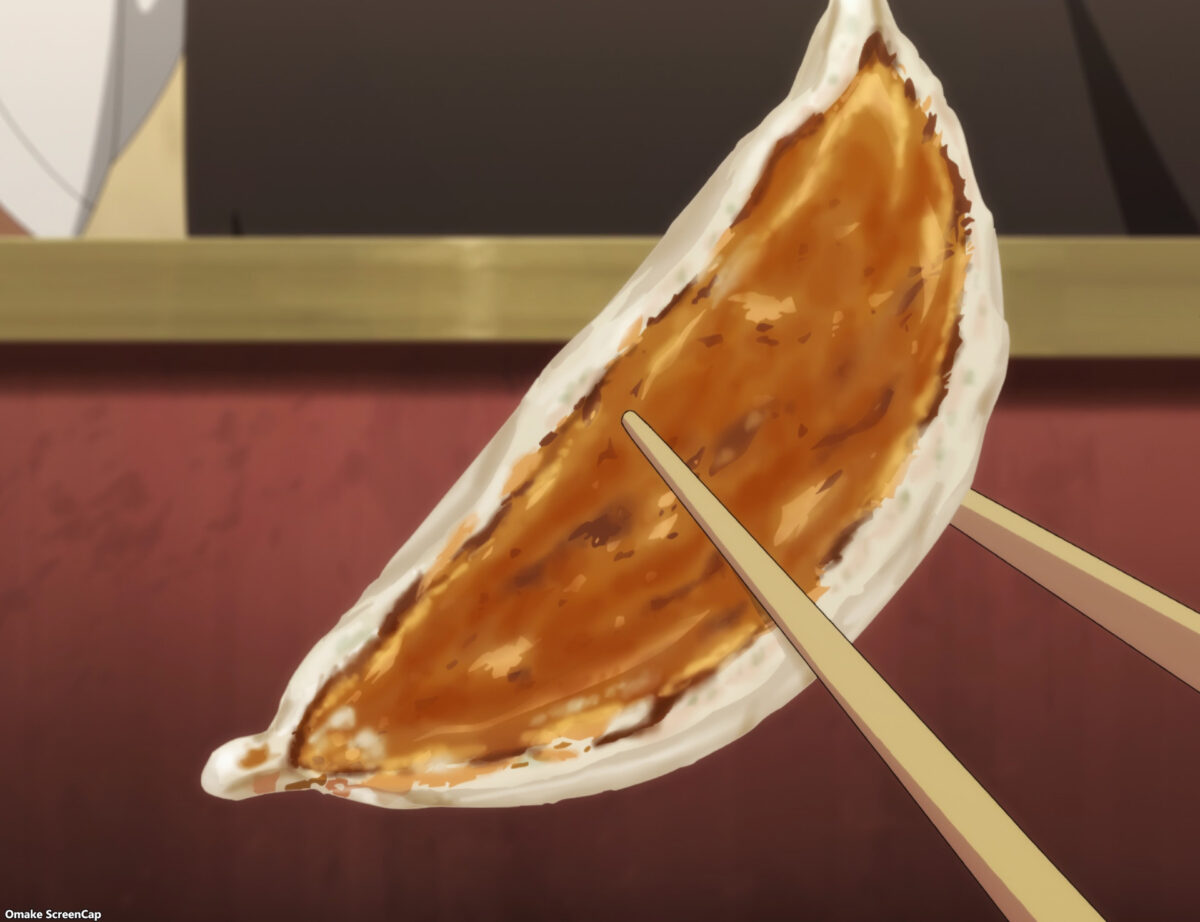
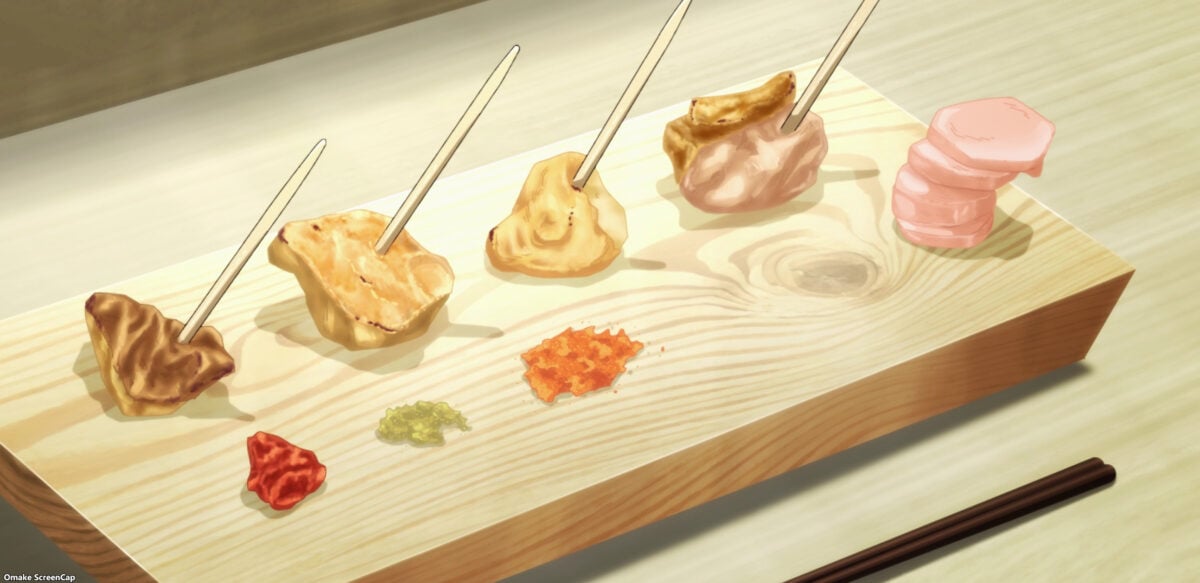

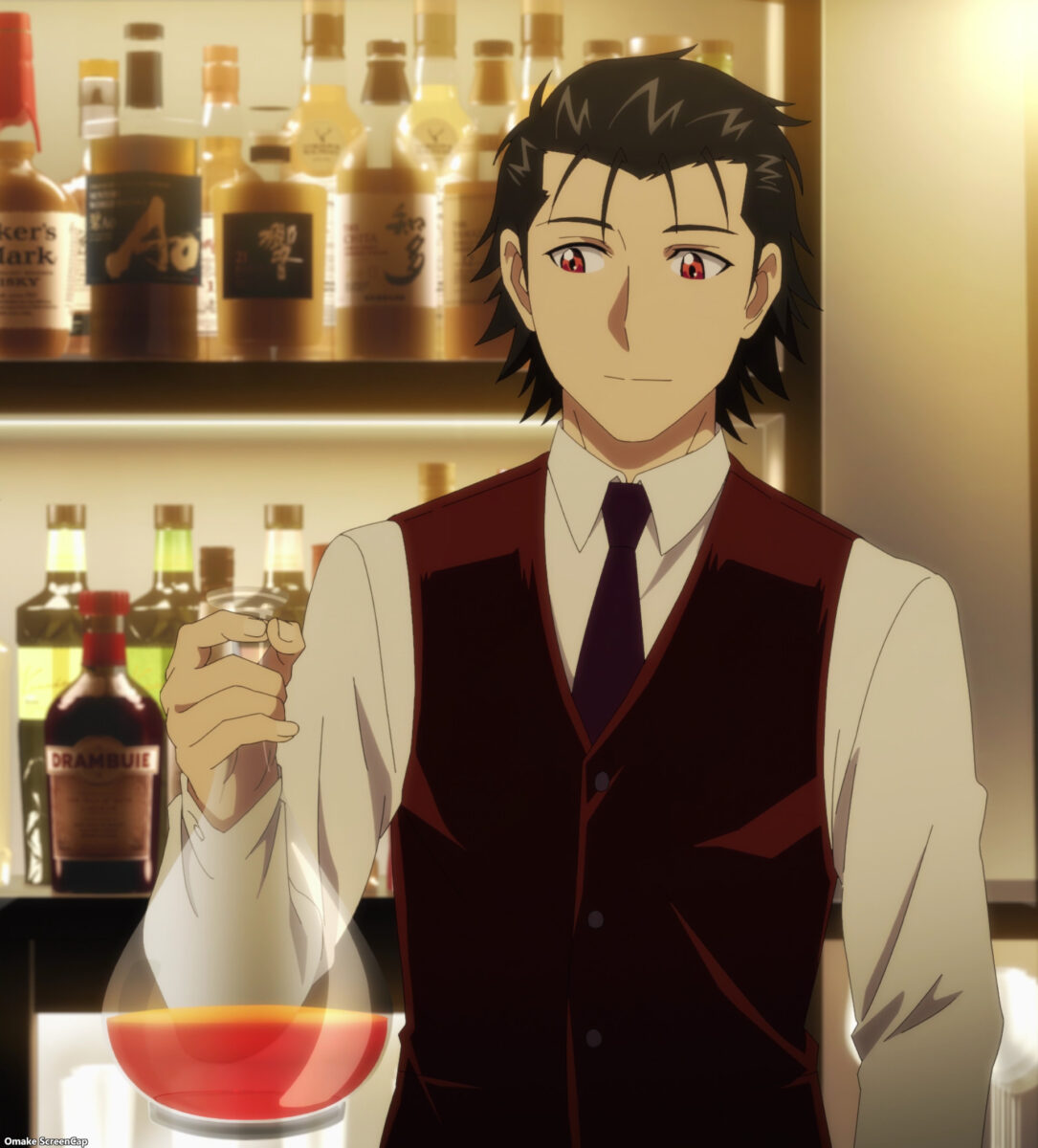
Bartender Glass of God’s foreshadowing tool was honey in gyoza (pot stickers) of how Hotel Cardinal recruited a famous French chef. The plot sticker (heh) for the chef was his demand to import ingredients for his menu from France. What could Sasakura do to relieve a Japanese French chef of his inferiority complex? Sasakura could have told him how he was a master bartender in France until recently, but the Glass of God needs to relieve stress with a single drink. His solution? Smash the chef’s preconceived notions. Overcoming preconceptions allows the imagination to create new flavors. Chef Yamanouchi guessed premium mirin tasted like an oloroso sherry, aged twenty years. But mirin is sweet rice liquor, aged ten years. If a Michelin three-star chef can’t tell the difference, how could any Japanese restaurant customer?
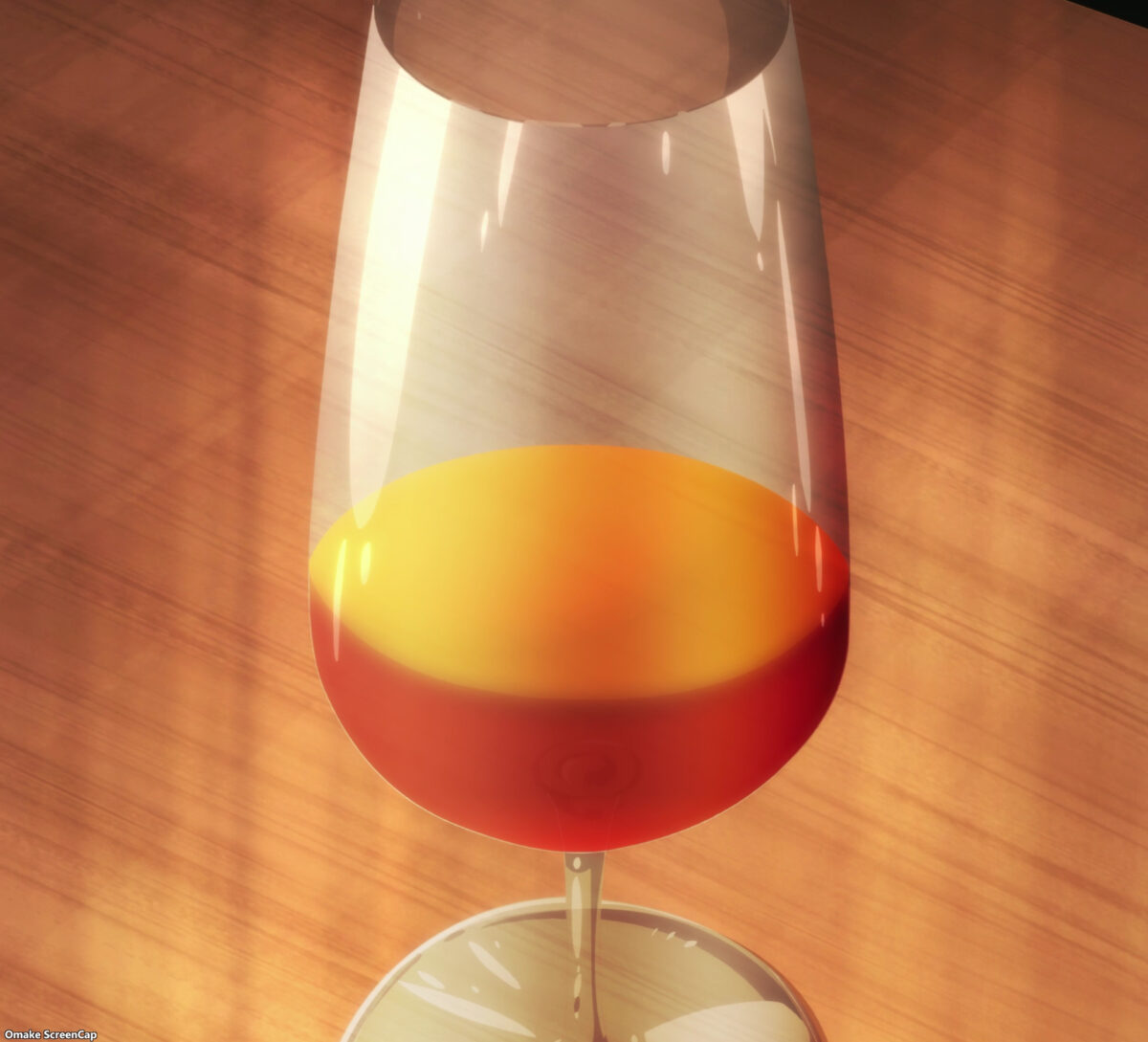
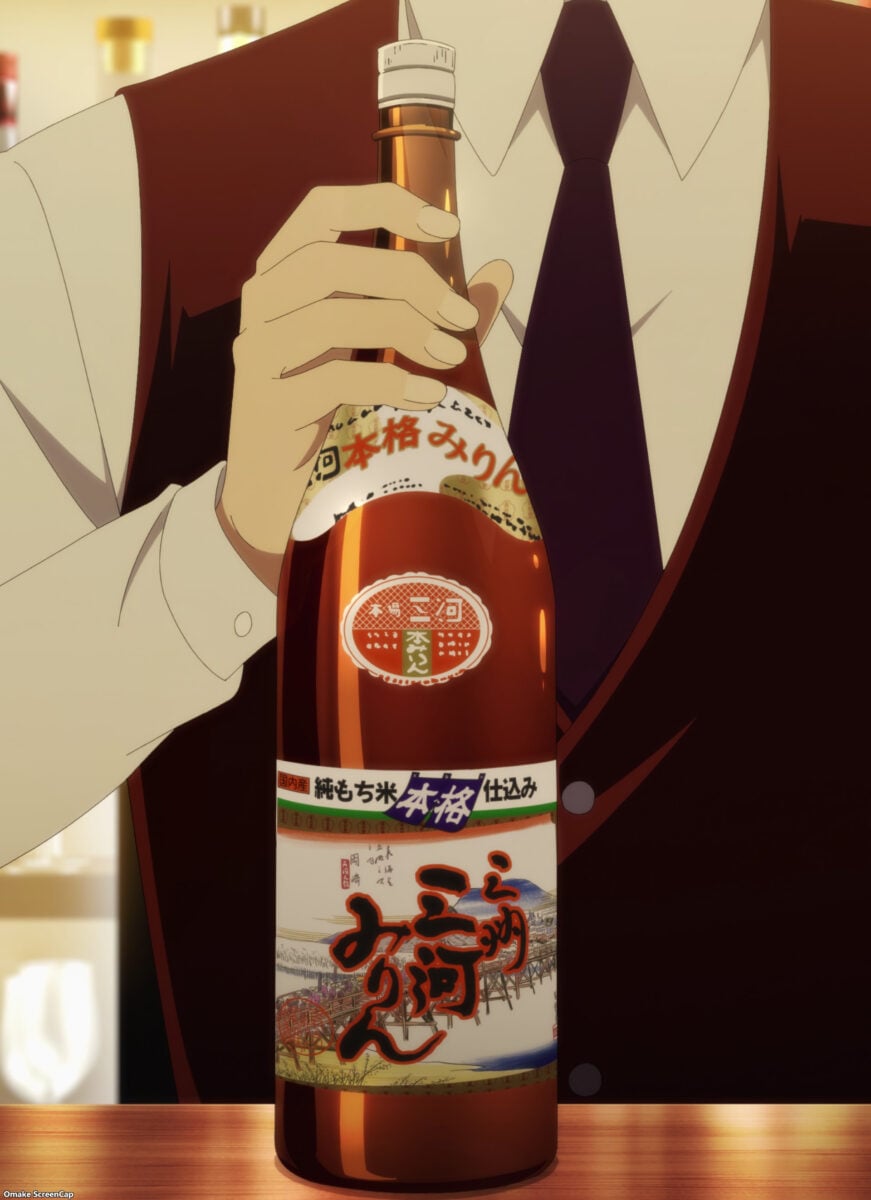
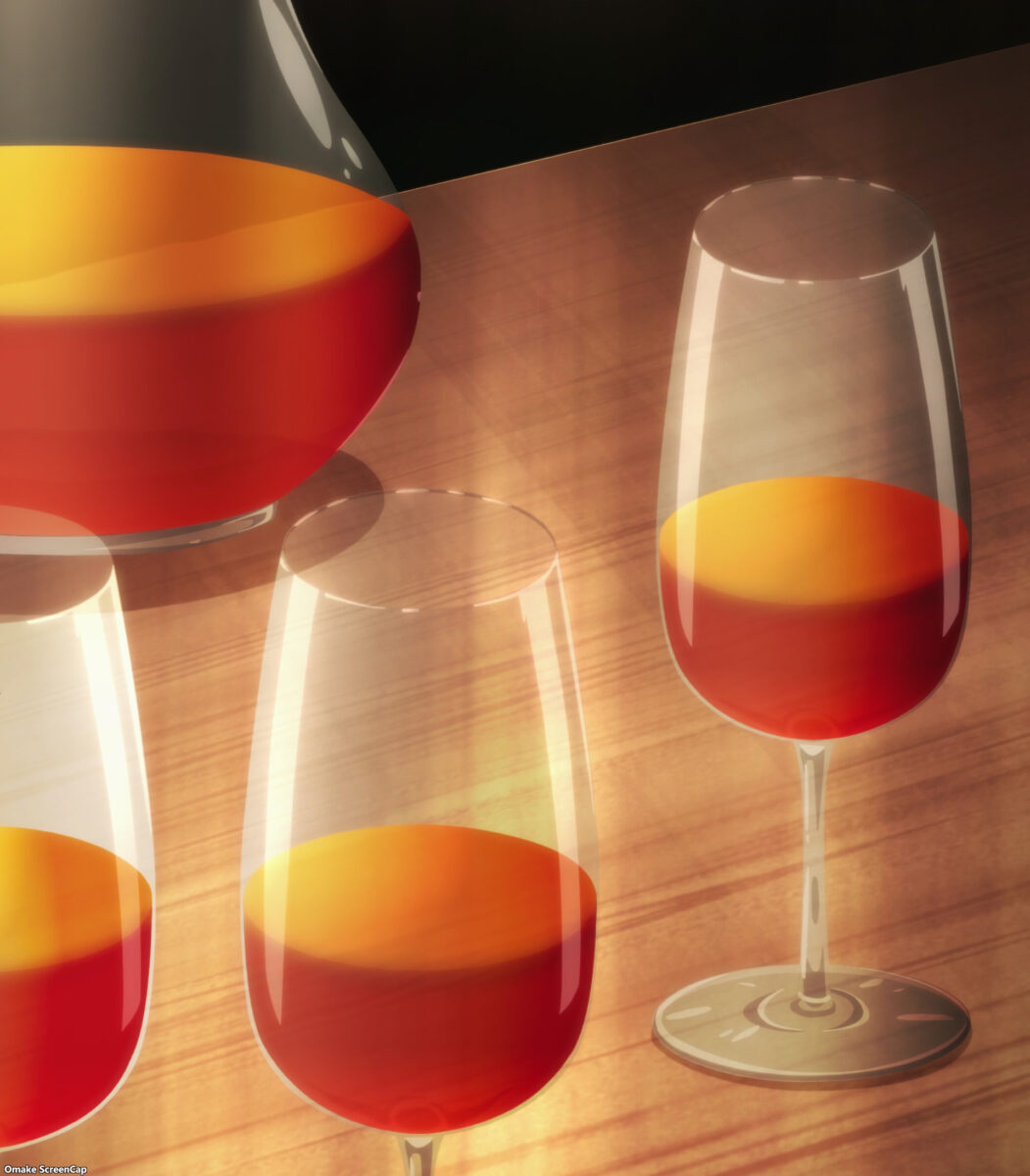
Fortified wines, wines with added extra alcohol, are not spiked punch to get you drunk in a hurry. The additional alcohol in wine stops the fermentation process, so the bottles can store longer. This is why many “old-fashioned” liquor varieties appear as hodge-podge alchemy that a bartender invokes, as the Glass of God does. Before refrigeration, food storage consisted of preserves and fermentation. And that preserved or fermented food needed “help” to make it taste better. Flavor-starved explorers colonized whole continents in search of spices. Now, we drink infused alcohol for entertainment, but we still use fortified wine for cooking. Japanese cooking relies on mirin (fortified rice wine), and French cuisine uses cooking sherry (fortified grape wine from a specific area in Spain). When you try an aperitif or dessert wine, think of how far we’ve come because we use electricity to make ice.
Martini, the King of Cocktails.
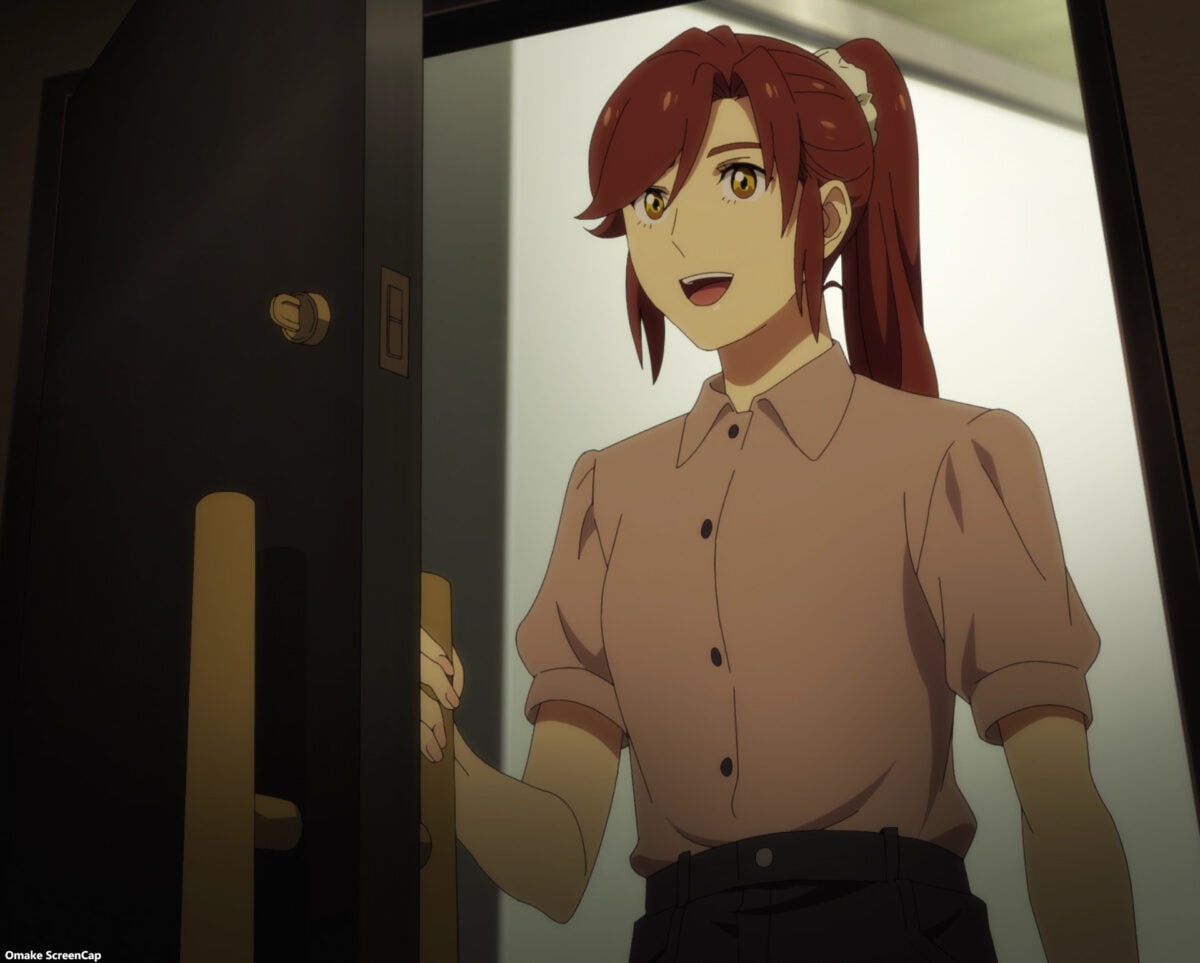
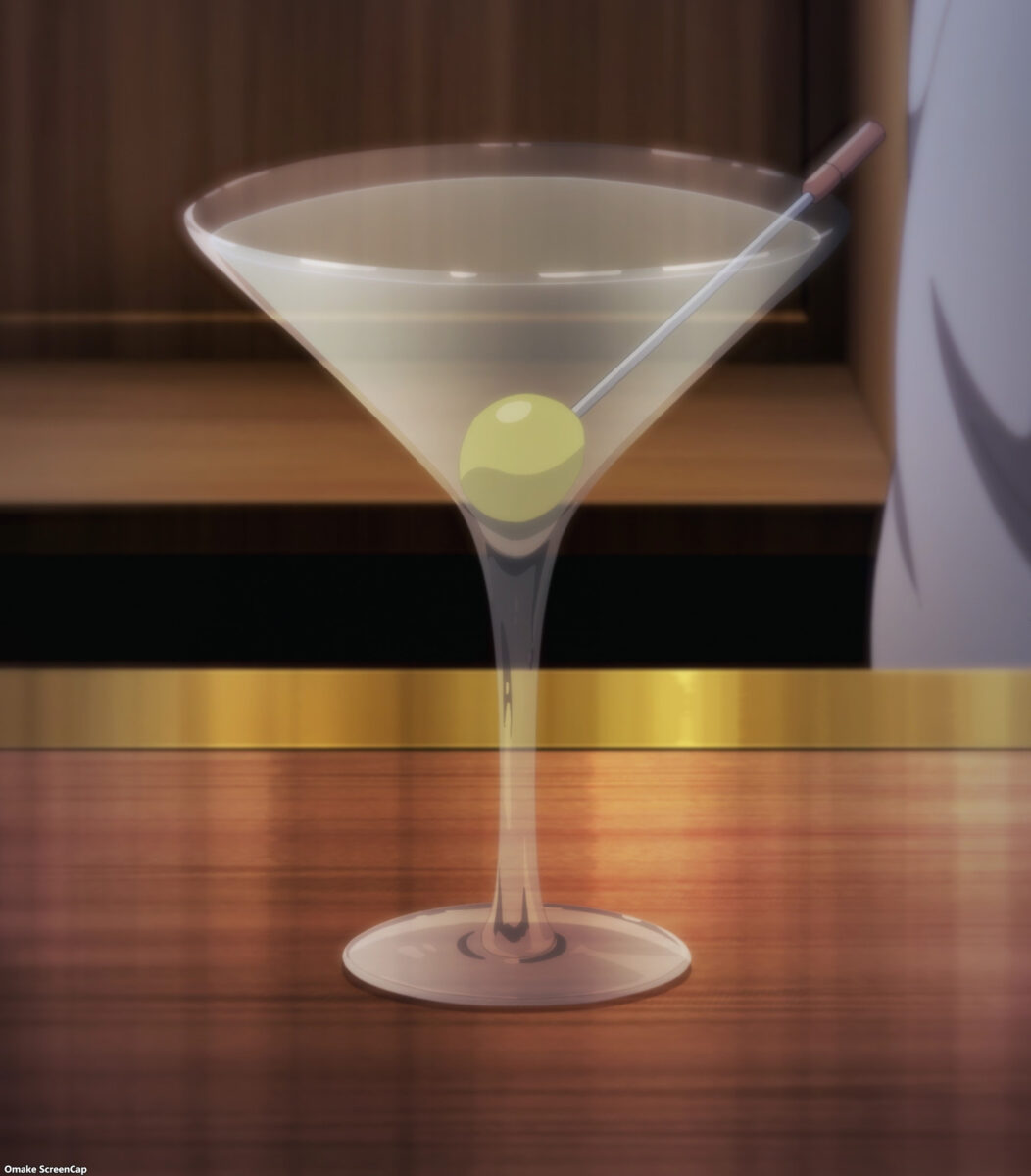
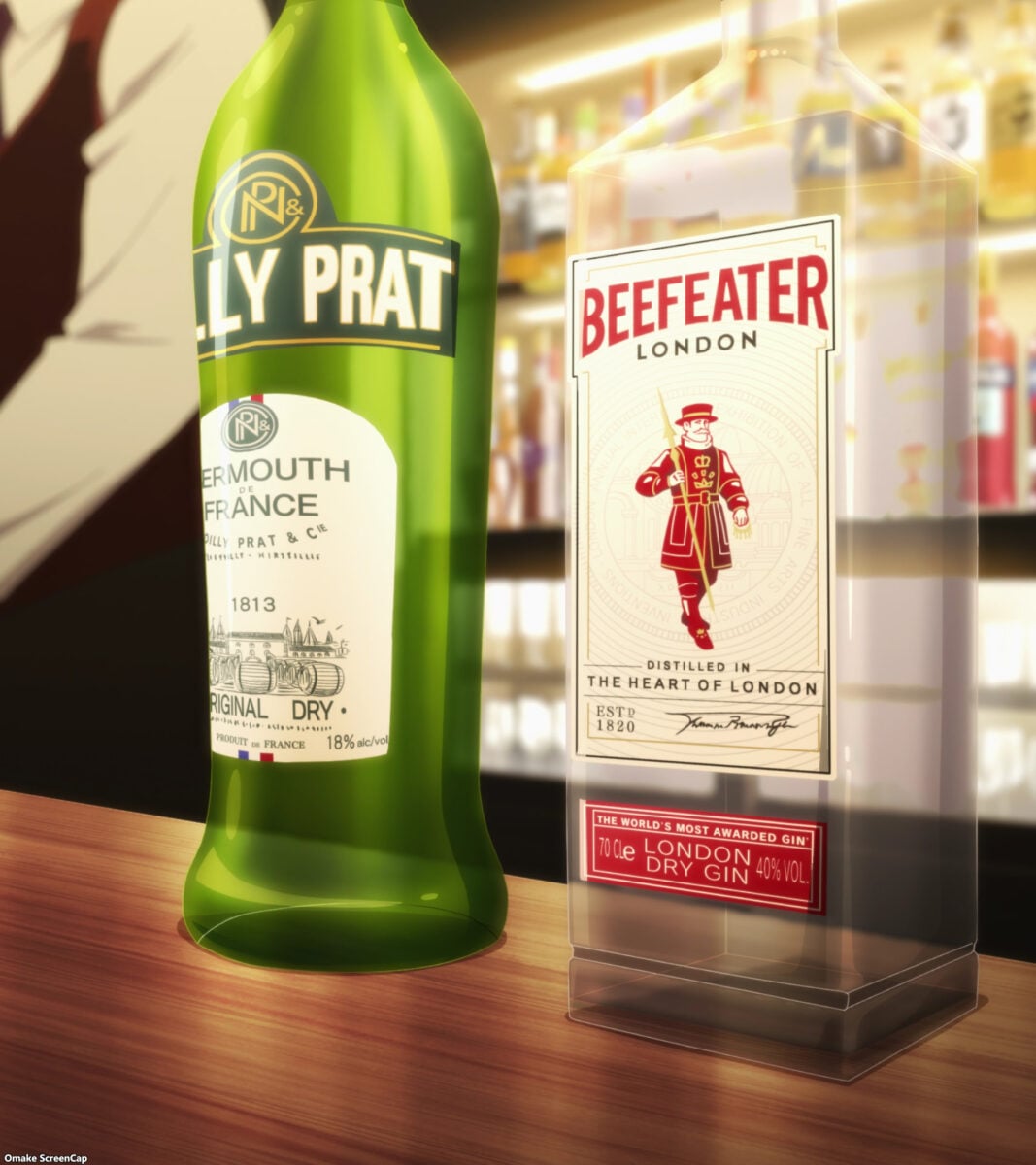
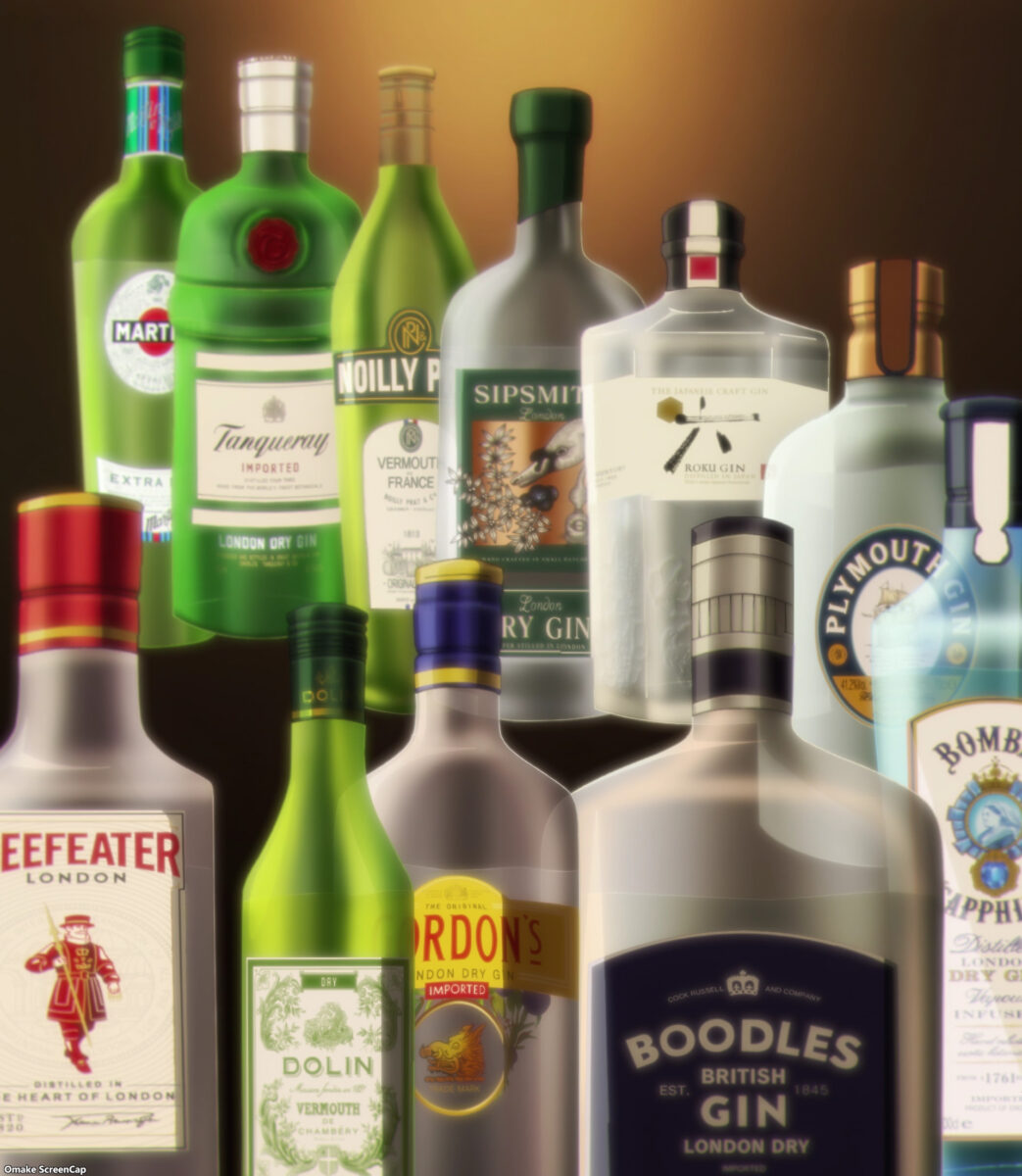
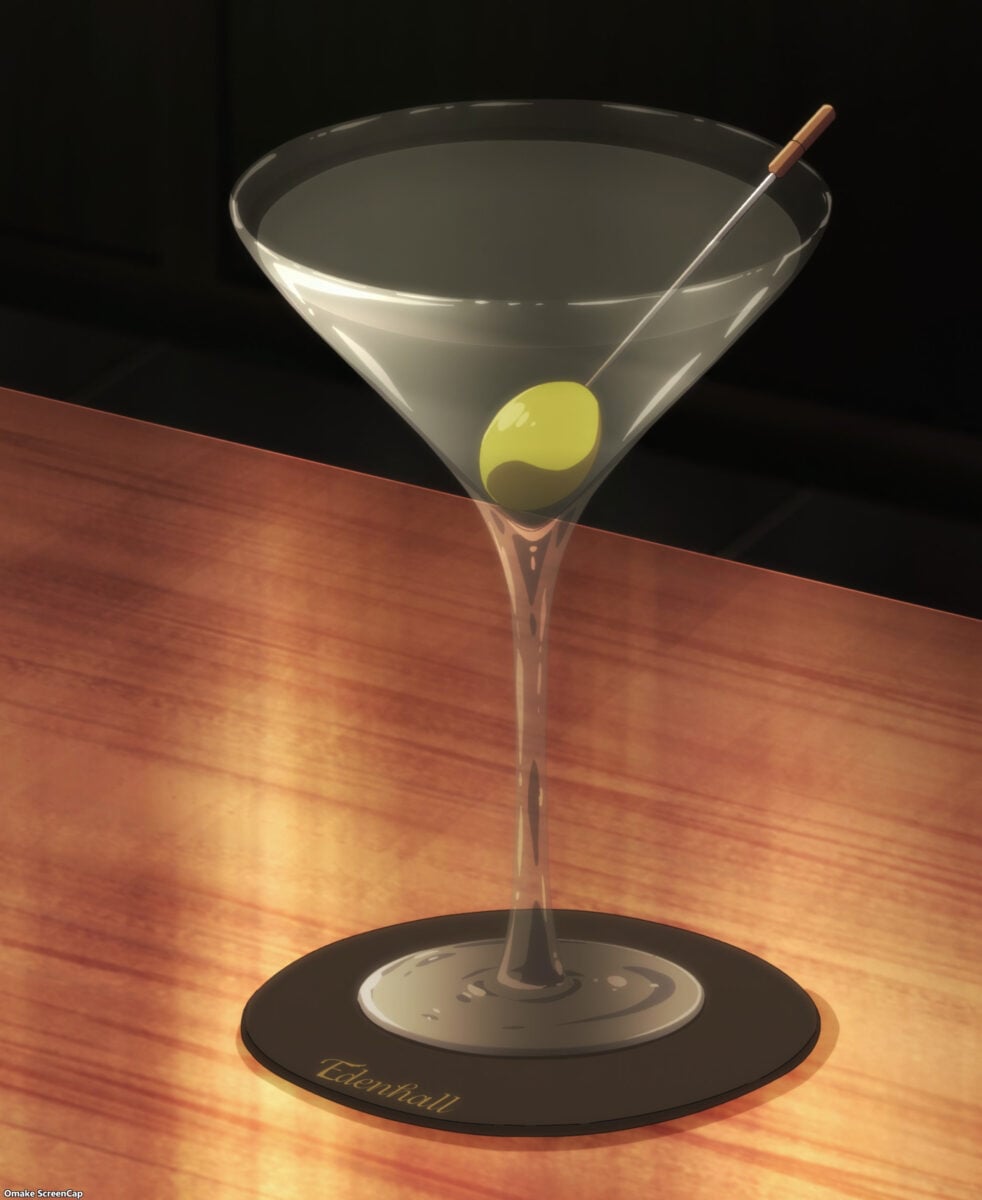
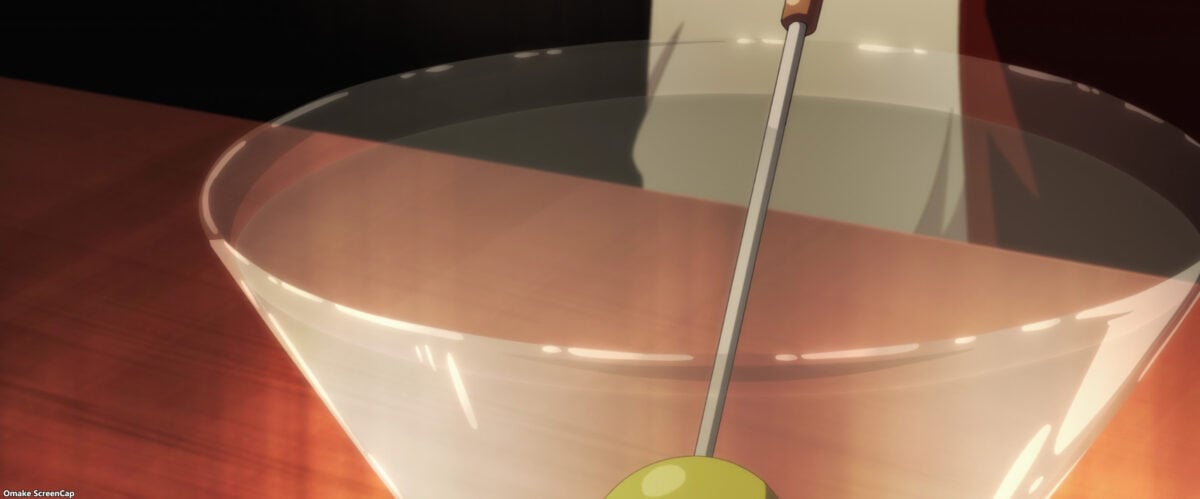
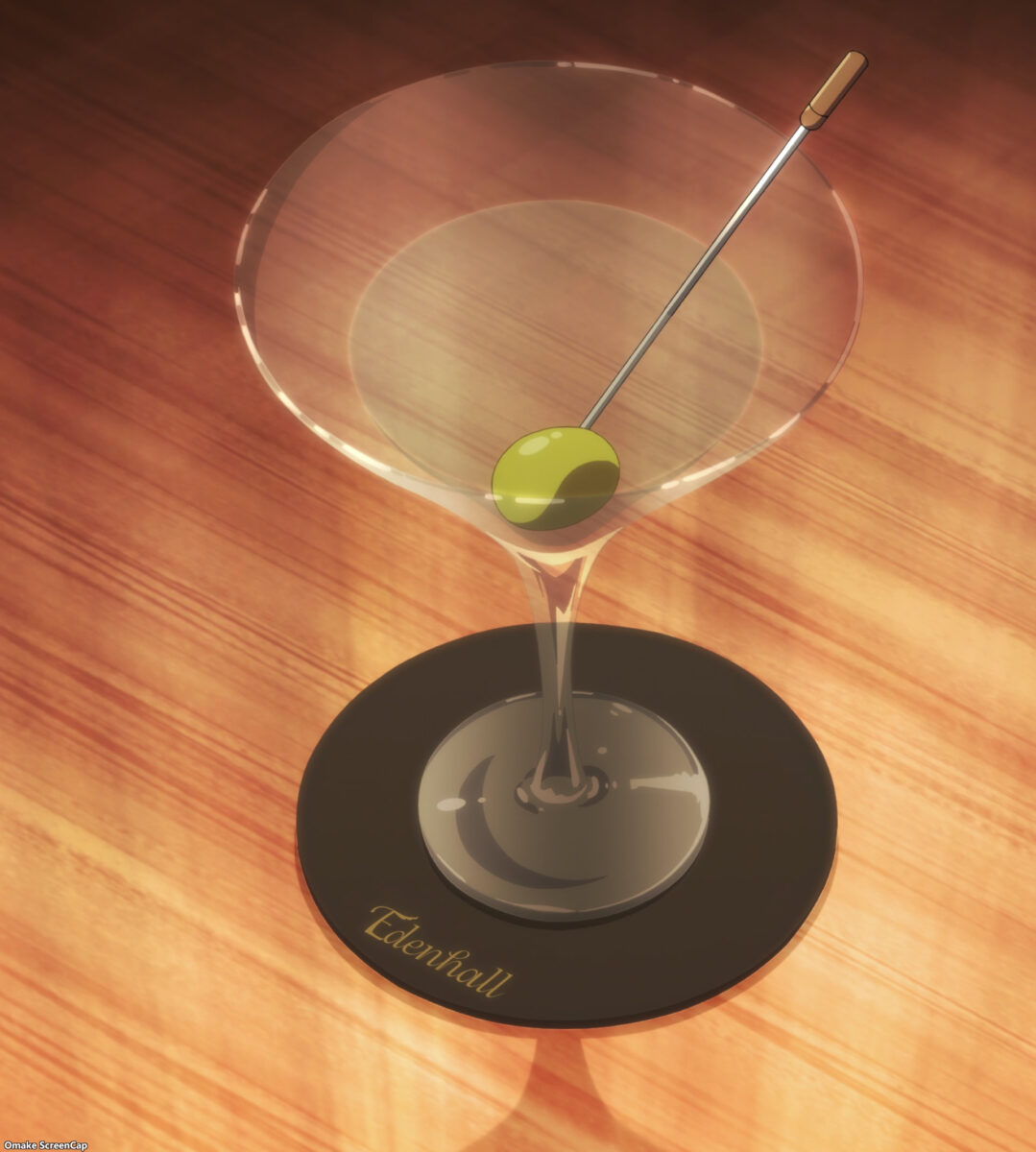
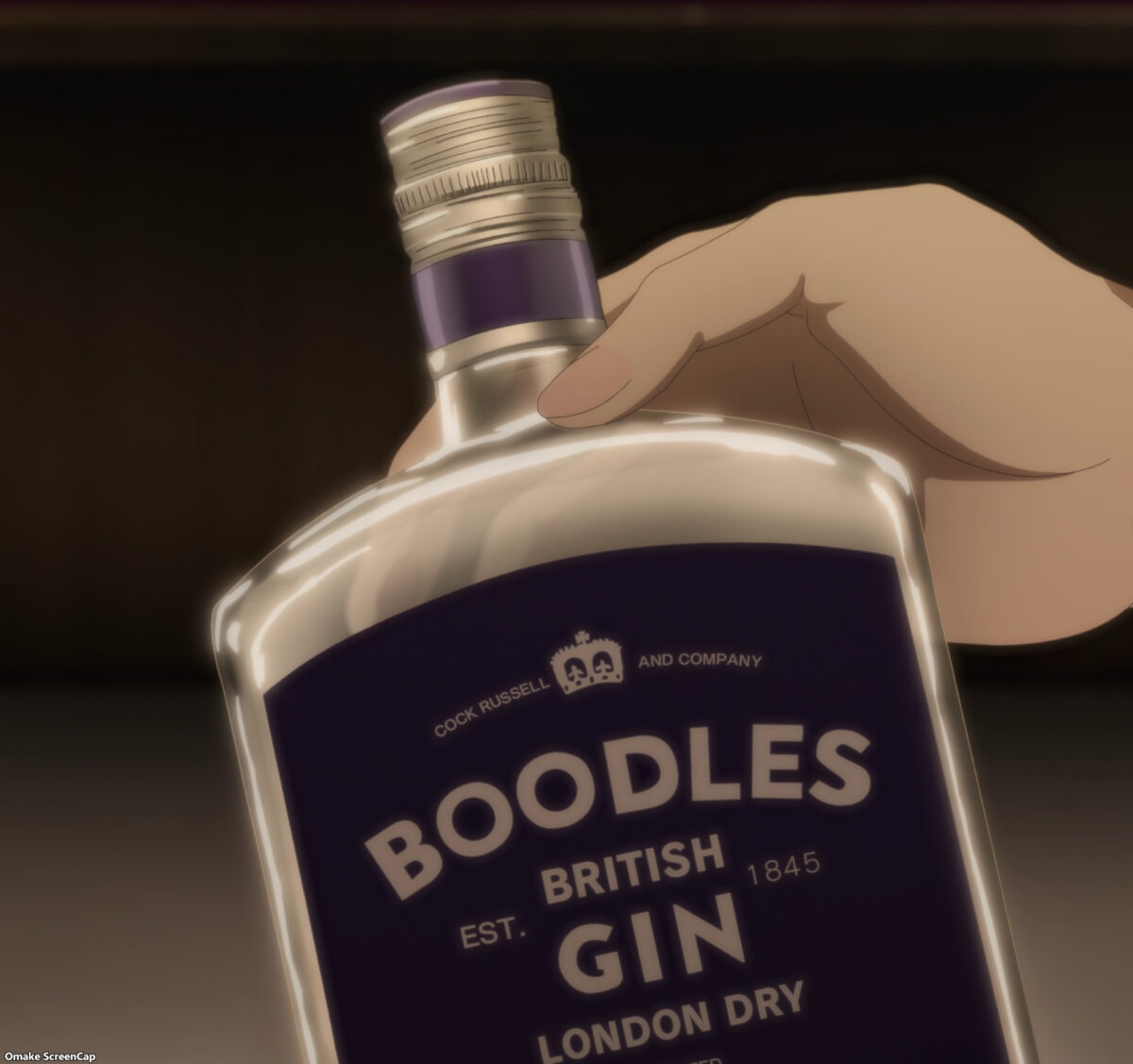
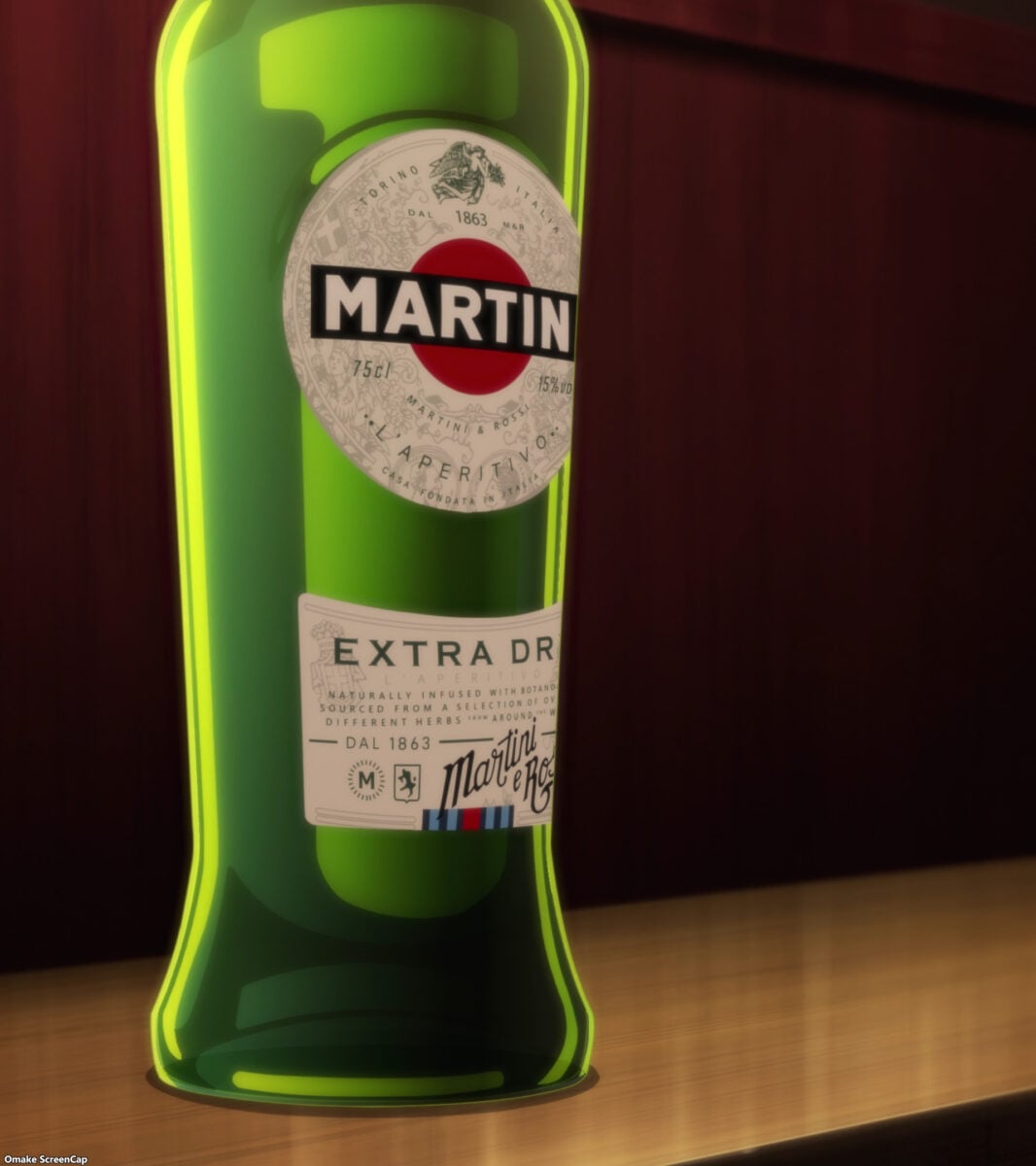

Gin has many varieties and flavors from the different botanicals, but juniper berries are the prominent ones. Vermouth is a fortified aperitif wine infused with herbs and aromatics of several varieties. Mixing them together accounts for exponential combinations and flavors. So, the personality of the martini also matches the personality of the bartender who chooses it. The “face” of a martini shows after the preparation brings forward the properties of the ingredients. Sasakura, the Glass of God, explains how Beefeater gin needs aeration for the nose to pick up its citrus aroma. The Hell’s Arms bartender cools her Boodles gin and only dashes its martini with vermouth. That’s her personality.
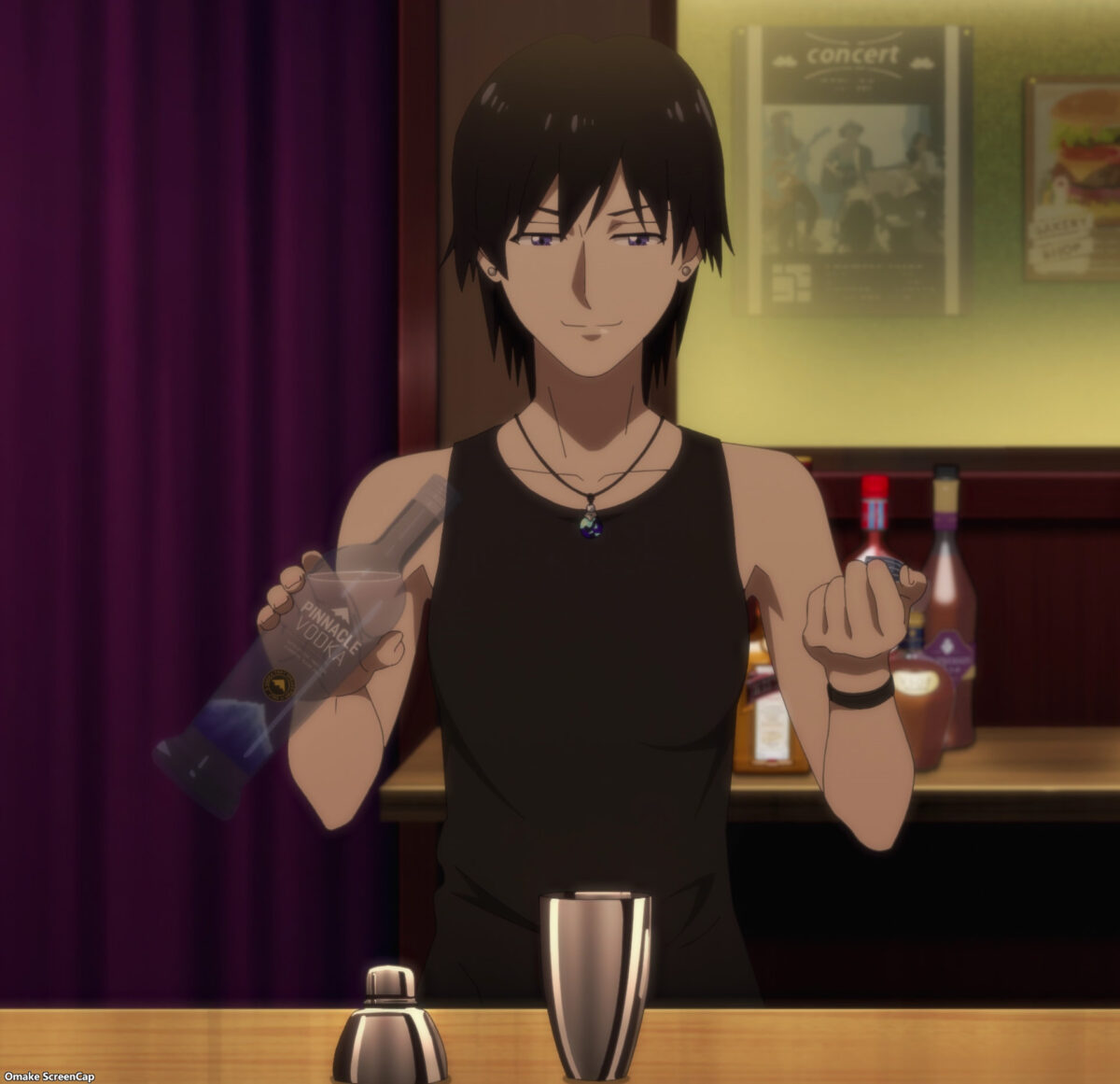
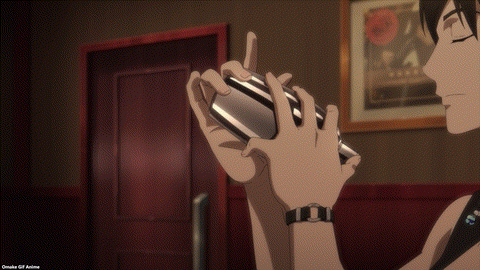
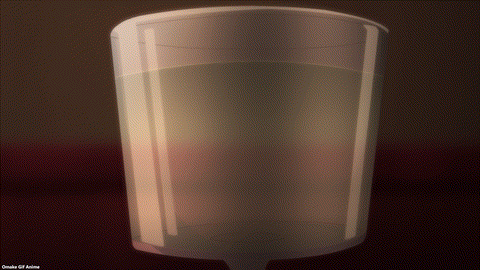
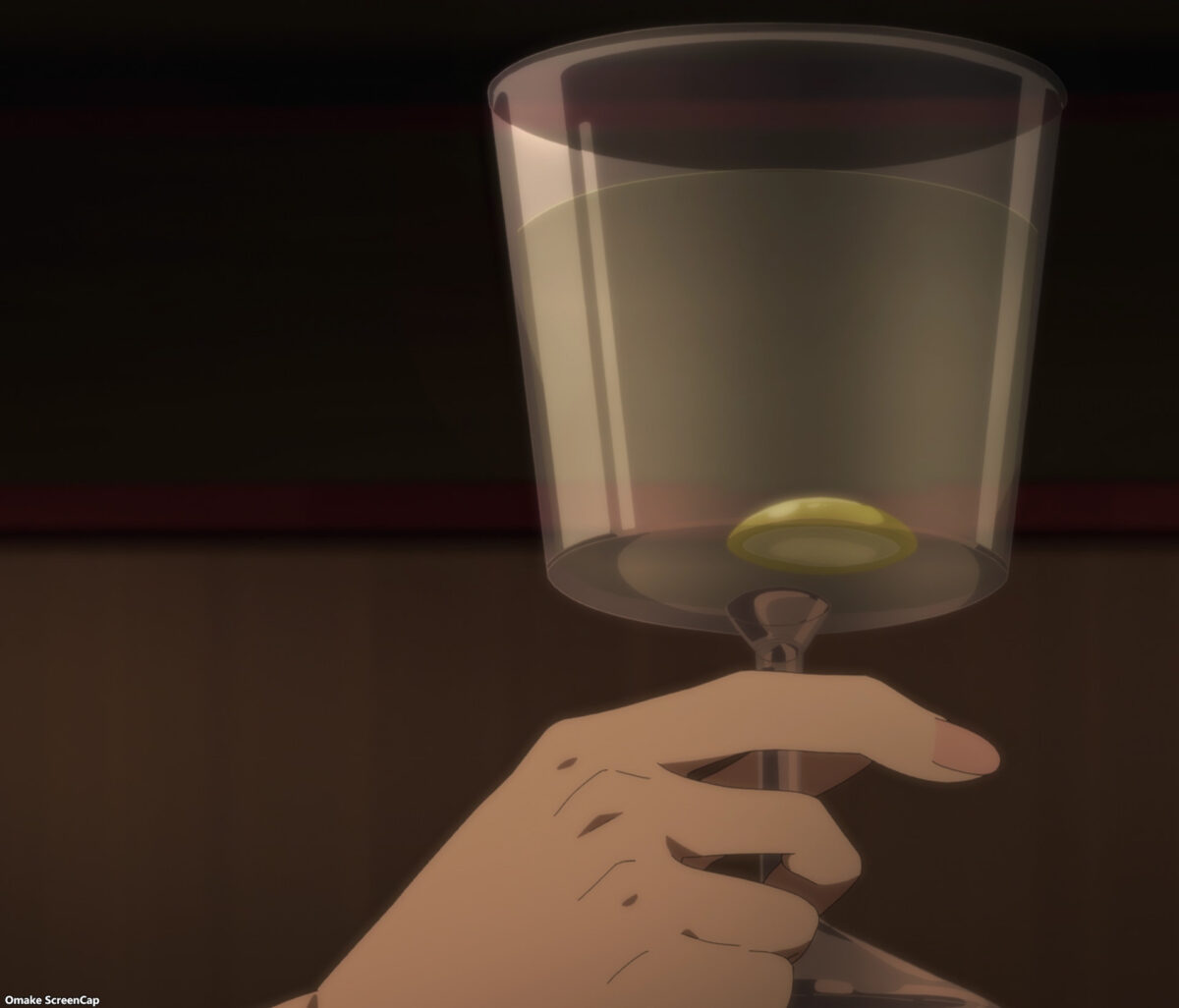
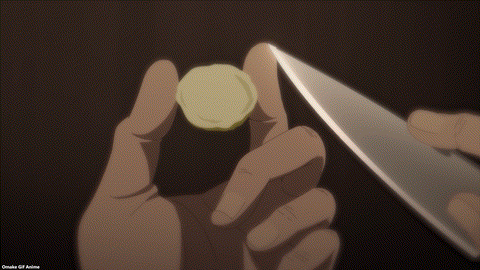
Then there are vodka martinis, popularized by James Bond’s preference for the shaken variety. Yuri Ginjo showed off the Hell’s Arms bar’s technique of turning a lemon peel into a suction cup. That kind of imagination surprised Kyouko. Then, she learned the artisanship of stirring and shaking to raise the temperature of a liquor with ice instead of only cooling it. Mixology is a vast world. And Sasakura is still a harsh teacher.
Bartender Glass of God (Bartender: Kami no Glass) streams on Crunchyroll in Japanese audio and multiple language subtitles. Bartender (2006) also streams on Crunchyroll in Japanese audio and English subtitles.
Do you want to try a Moscow mule? It used to be the popular happy hour drink for downtown tech-sector workers. Now they work from home, so what do they mix up there? A Kentucky mule (bourbon instead of vodka) would be my ideal. How about you? What would you concoct at your home office? Let us know in the comments below.
Let’s Chat
You made it to the end of this post! Thank you! As a token of our appreciation, enjoy an extra 5% off your next order when you use the code BLOG at checkout. Also, don’t forget to follow J-List on all our platforms!
- Twitter / X, where Peter posts anime booba for you
- Bluesky, where we post several times a day
- Facebook, where we used to share memes and discuss anime
- Discord, if you want to chat with other J-List customers of culture

Valentine’s Day is coming, and J-List is showing how much we love our customers with a big sale! Until February 15, get 15% off all in-stock products shipping from Japan automatically. Time to stock up on awesome hentai products, ero lotion, and our world-famous “dolphin polishers” from Japan! Start browsing here.















